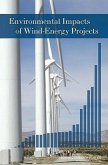Manufacturing is a prime wealth-creating activity for any nation. Rising environmental and social concerns have made environmental issues pertinent to industry along with development. Since manufacturing processes contribute significantly to energy and resource consumption, they are responsible for large amount of carbon emissions. Natural resources are depleted at a high rate to meet the ever rising demand of industrial development and this also causes rise in carbon emissions. It also contributes to the threat of climate change, waste management, global warming, and eco-system imbalance. According to a study conducted by International Energy Agency (IEA), manufacturing industries account for one-third of global energy consumption and 36% of net global carbon emissions. The growth of manufacturing is expected to continue for a long time to fulfill the aspiring needs of the population in developing and emerging countries. Energy is one of the key inputs for manufacturing. Sustainable development, energy security, increasing energy cost, and political compulsions force nations and industry to strive for energy efficiency. This has motivated/forced the manufacturing organizations to adapt sustainable manufacturing practices. Sustainable manufacturing as defined by the US department of commerce is the creation of manufactured products by using processes which minimize negative environmental impacts, conserve energy and natural resources, are safe for employees, communities, and consumers and are economically sound. A large and growing number of manufacturers are realizing that sustainable business practices provide financial and environmental benefits. This has led to the development of strategies to improve energy efficiency and reduce environmental impacts in the manufacturing sector. From the industrial perspective, new and improved set of management and production practices are required to identify the sustainable energy options and achieve cleaner production. Machining, a key manufacturing activity, has been targeted for energy reduction because of its size and importance. Machining uses electrical energy and natural resources to convert raw materials into useful products, while creating negative environmental impacts. CNC machine tools are widely used in modern machining activities for better precision, repeatability, flexibility, and ability to produce complex shapes. Machine tools are not only dominant electric energy consumers in manufacturing industries but also responsible for high carbon emissions. Their efficiency is less than 30%; hence, machine tools have a major potential for energy efficiency gains and savings.







